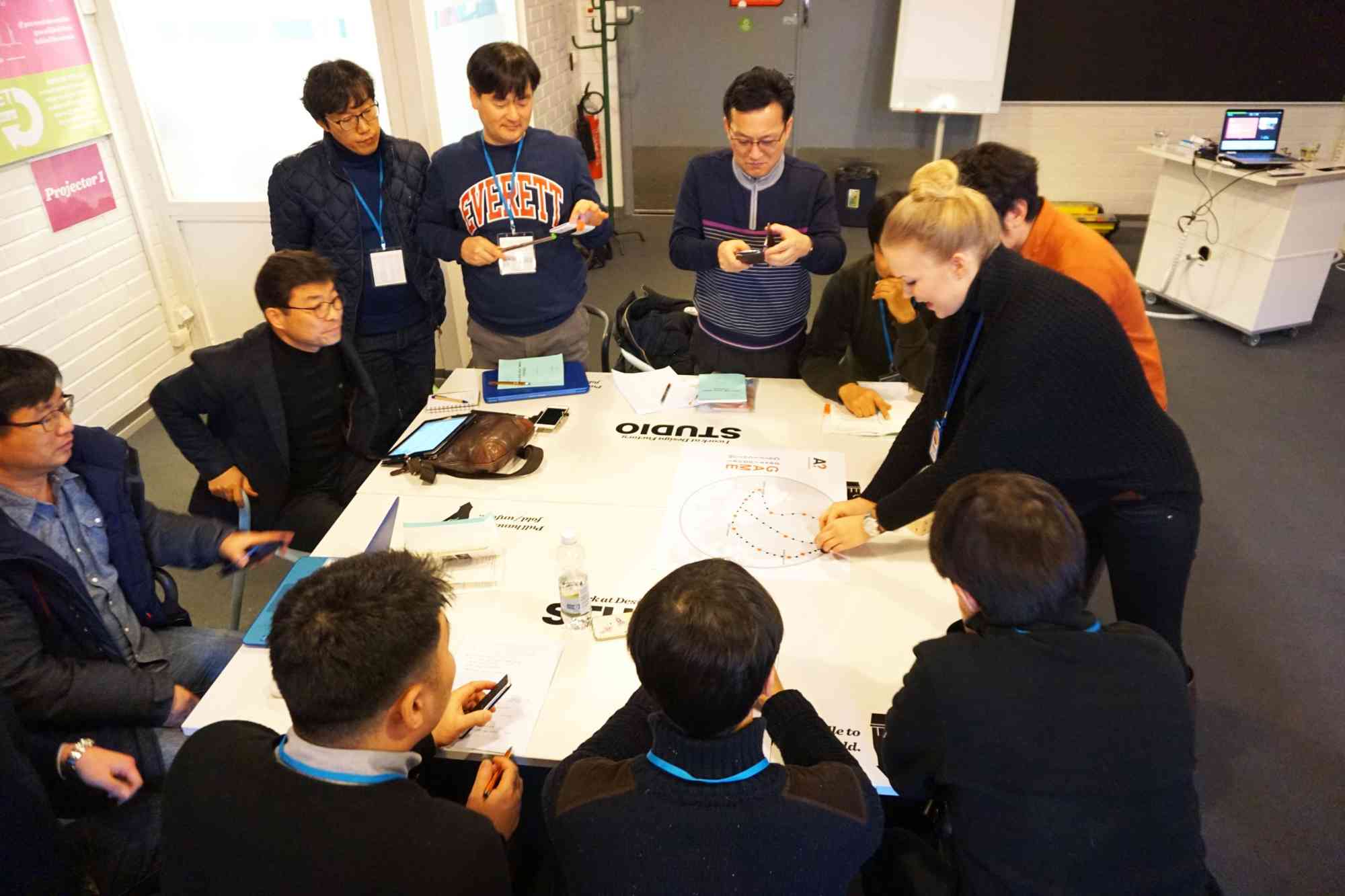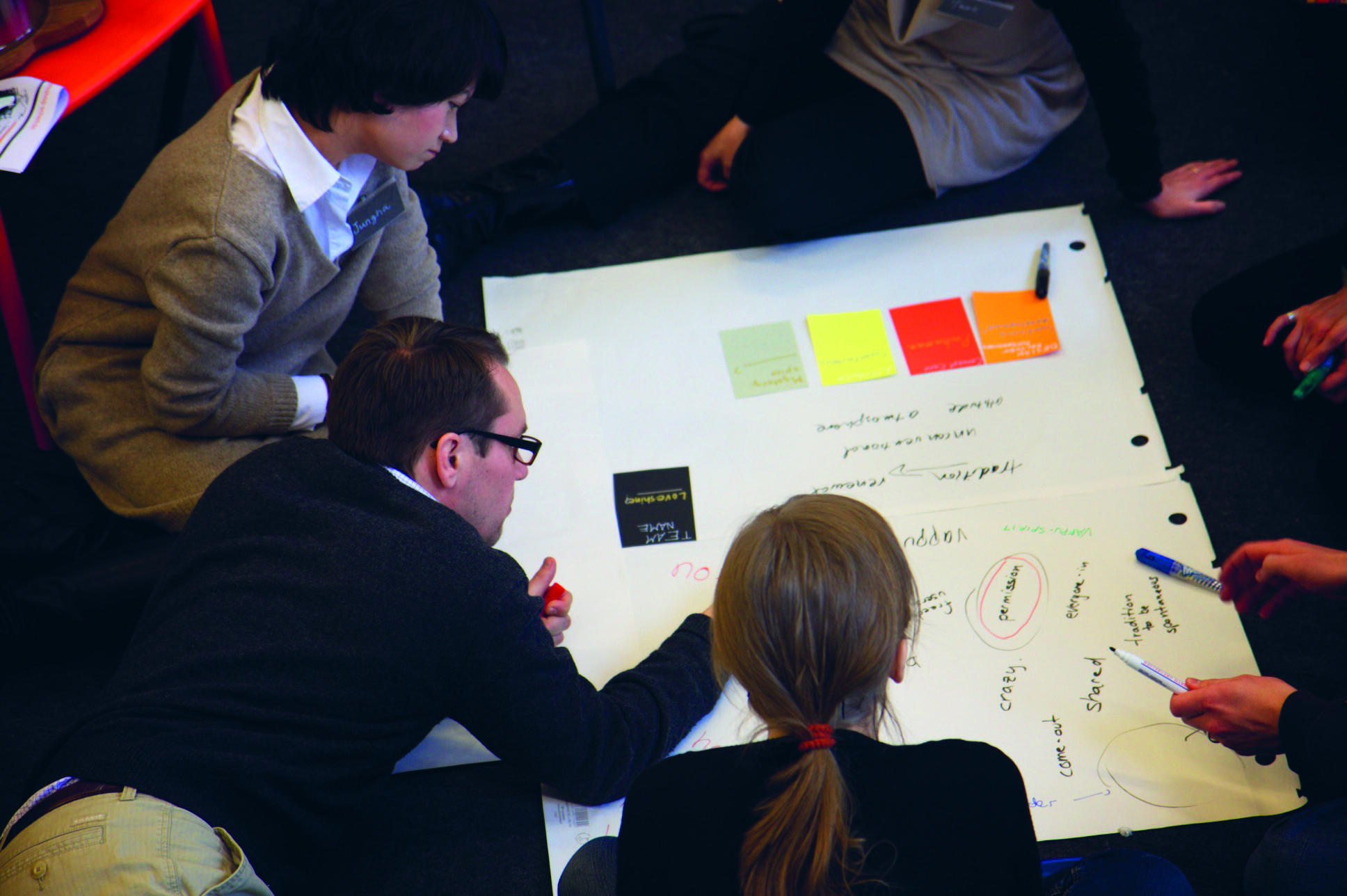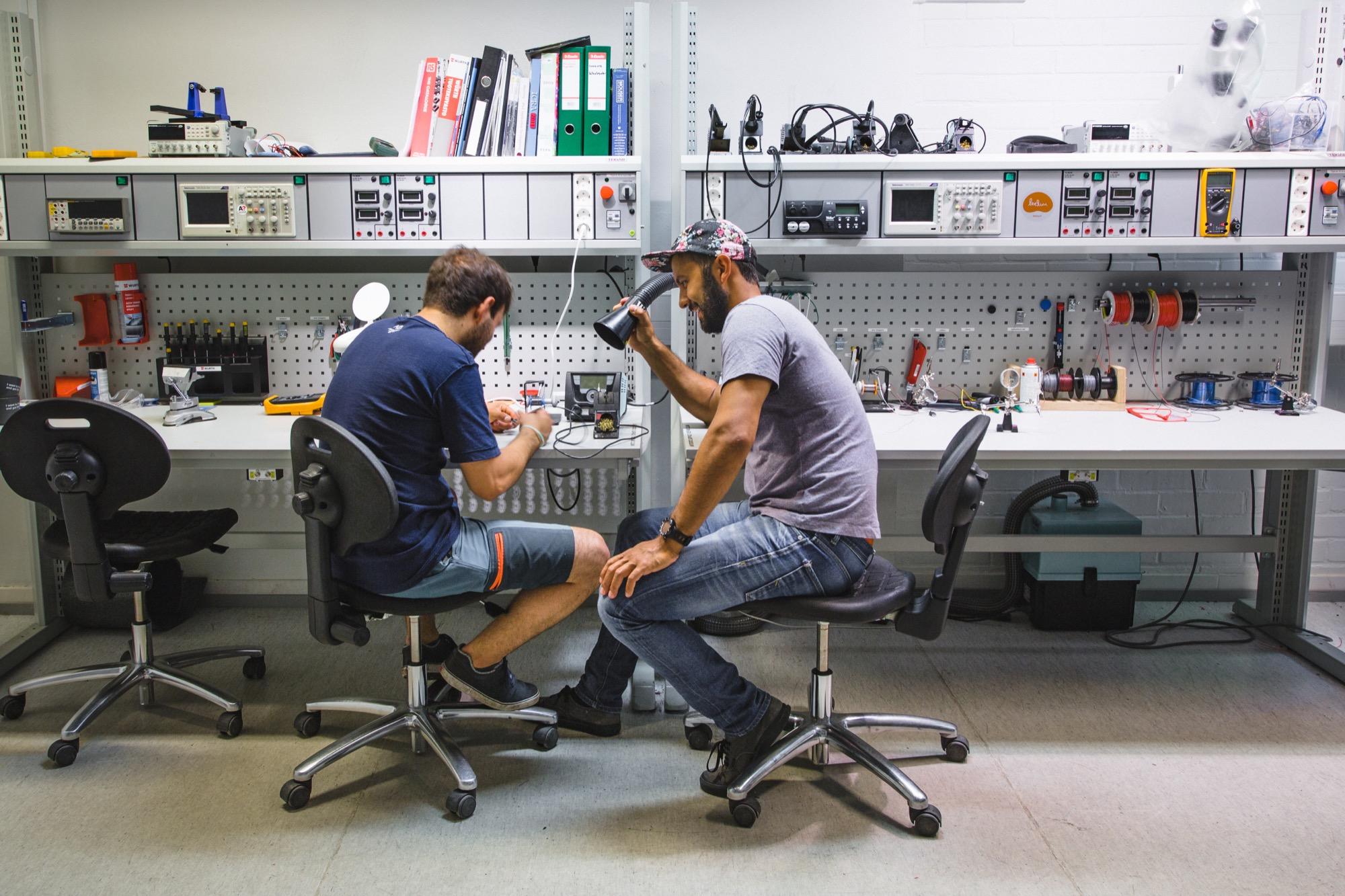Alongside the pedagogical development services currently offered at Design Factory through courses, we sometimes get special request for pedagogical development workshops. Recently ADF was happy to welcome a group of Korean high school teachers looking to improve their pedagogical skills in an environment fostering entrepreneurship.
The workshop, in which the teachers reflected on what good teaching is, and what are some entrepreneurial skills, was based on the work by Tua Björklund, Elina Kähkönen and Maria Clavert.
Full post
 Aalto DF
Aalto DF

